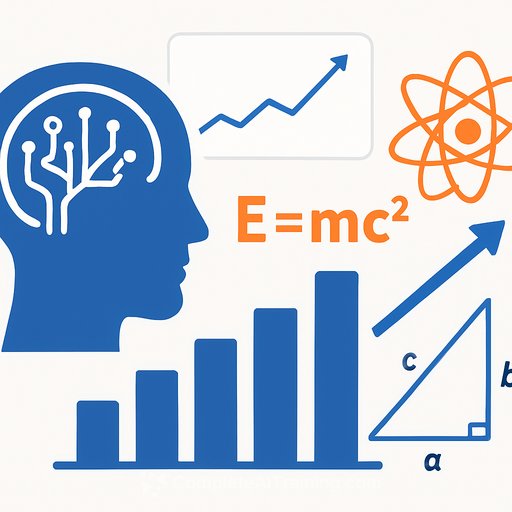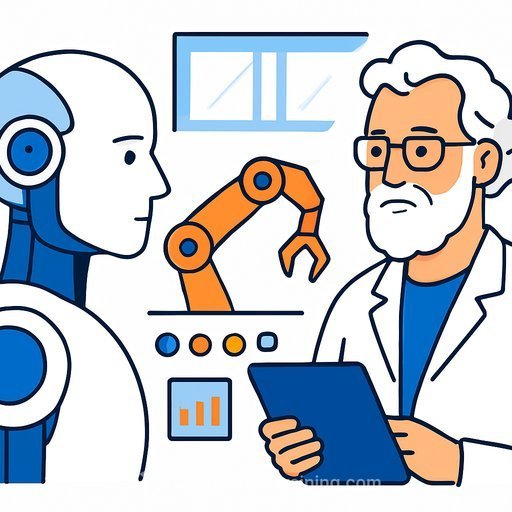University English Teaching Evaluation Using Artificial Intelligence and Data Mining Technology
Abstract
This study proposes an innovative approach to university English teaching evaluation by integrating deep learning (DL), artificial intelligence (AI), and data mining techniques. The method leverages the Transformer architecture to analyze English teaching evaluations, enabling detailed feature extraction and sequence modeling for accurate assessment of students’ English proficiency. A Bayesian framework supports personalized teaching strategies by adapting to individual learning habits and needs.
Data from the 2018 Computer Science cohort at Tianjin University of Science and Technology was analyzed, revealing patterns such as sporadic active English learning among more than 70% of students, with females showing higher engagement. Listening and speaking skills are widely recognized as critical by both genders. The study highlights that exam scores across different question types strongly influence final grades, reflecting students’ mastery of knowledge and application.
By applying Transformer models from natural language processing to education, this approach offers a new interdisciplinary perspective that improves the objectivity and precision of teaching assessments while reducing human bias.
Introduction
Research Background and Motivations
English teaching quality and assessment remain central concerns in higher education. Current evaluation methods often rely on limited criteria and subjective teacher judgments, which restrict the potential for timely and comprehensive feedback. With advances in AI and big data, particularly deep learning, new opportunities arise to transform English teaching evaluation through automated scoring and multidimensional data analysis.
Deep learning enables personalized learning experiences by recommending suitable resources based on student behavior and performance. Meanwhile, data mining techniques can extract valuable insights from large datasets to improve teaching quality. This research aims to combine these technologies to develop an efficient and equitable assessment framework suitable for large-scale educational contexts.
Research Gap
Previous research tends to apply data mining techniques in isolation, missing the benefits of combining Transformer architectures with Bayesian frameworks for personalized learning. Gender differences in learning preferences and skill priorities are often overlooked. This study addresses these issues by integrating behavioral sequences with multi-source assessment data and using interpretable decision rules to clarify model contributions.
Research Objectives
- Advance English teaching assessment through DL and AI-driven data mining techniques.
- Develop a Bayesian approach for personalized English instruction.
- Analyze learning behavior data to predict exam performance accurately.
- Identify key factors influencing the development of English proficiency.
Literature Review
Deep learning and AI have increasingly influenced language education, bringing greater accuracy in assessing student proficiency and enabling personalized instruction. Traditional methods fall short in capturing the dynamic and multifaceted nature of language learning. Research shows that leveraging big data and machine learning algorithms can provide more precise evaluations and tailor teaching strategies effectively.
Research Model
The proposed framework combines Transformer-based sequence modeling with Bayesian inference to personalize learning. The Transformer’s self-attention mechanism captures temporal dependencies in student learning behaviors, modeled through an encoder-decoder structure. Monte Carlo dropout approximates uncertainty, while Bayesian posterior distributions integrate multimodal data, enhancing predictive robustness.
Personalized English Teaching in College Based on DL
Personalized learning addresses individual differences in preferences and weaknesses by offering customized advice and resources. Tools such as interactive ability tests evaluate learning processes, while online education platforms allow students to access suitable materials at their own pace. Pre- and post-class assessments help deepen understanding, making personalized learning a practical and effective model.
Process of AI Data Mining
Data mining uncovers meaningful patterns within large datasets using algorithms from statistics, machine learning, and pattern recognition. Key steps include data preparation, integration, selection, and preprocessing. This study uses decision tree algorithms with feature selection based on information gain to identify the most relevant features for modeling student performance.
Experimental Design and Performance Evaluation
Constructing student group profiles enables educators to understand learning habits and needs. The dataset includes textual, numerical, and categorical data with high dimensionality. Decision trees were chosen for their ability to handle mixed data types without complex preprocessing. The dataset comprises 1,500 samples, balancing computational efficiency and interpretability.
Student Performance Prediction and Analysis
The model uses the Liblinear library with 10-fold cross-validation and L1 regularization to prevent overfitting. After iterative tuning, the model achieved an Area Under the Curve (AUC) of 0.8595, significantly outperforming random guessing (AUC of 0.5). This demonstrates strong predictive capability for exam outcomes based on behavioral and assessment data.
Discussion
AI applications in education, including automated assessment, must follow ethical guidelines. This study shows that English teaching evaluation benefits from real-time data collection and analysis beyond traditional exam scores. Data-driven approaches provide more objective and accurate assessments, reflecting students’ true proficiency levels and learning progress.
Conclusion
This research integrates deep learning and AI data mining to enhance university English teaching assessment. Applying Transformer architectures improves data processing efficiency and accuracy, opening new paths for educational innovation. The established student group profiles based on real data offer teachers actionable insights into learning progress, supporting more objective and timely evaluations.
For those interested in furthering skills in AI-driven education technologies, exploring comprehensive AI courses can be valuable. Resources such as Complete AI Training's latest courses provide practical knowledge in this area.
Your membership also unlocks:






